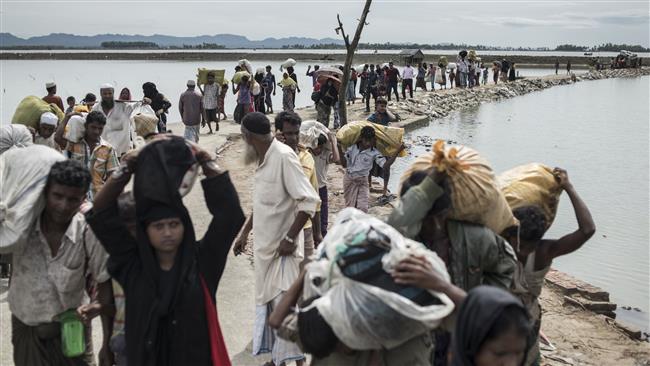
RNA - "We addressed the situation in Myanmar and the Rohingya refugee crisis. We want to see de-escalation of tension and the full adherence to international human rights obligations as well as full humanitarian access so the aid can reach those in need," said President of the European Council Donald Tusk on Friday in New Delhi, where he met with Indian officials.
"The EU continues to assume its responsibilities by receiving people in need of protection and by assisting host countries close to the conflict zones," the EU official said.
Tusk also stated that India was first in line to respond to the refugee crisis as a neighboring country.
Earlier on Friday, the United Nations said it was “unacceptable” that Myanmar’s government kept refusing to grant humanitarian access to Rakhine.
Authorities in Myanmar, led by de facto leader Aug San Suu Kyi, have been tightly controlling access to Rakhine since August, when purported attacks by Rohingya fighters prompted a brutal military response that has forced over 515,000 Rohingya to flee for Bangladesh. The crackdown, backed by radical Buddhist monks, has left scores of Rohingya villages torched and completely destroyed.
Myanmar’s government denies full citizenship to Rohingya Muslims, branding them illegal immigrants from Bangladesh.
Witnesses and rights groups have reported systematic attacks, including rape, murder and arson, at the hands of the army and Buddhist mobs against the Rohingya.
847/940